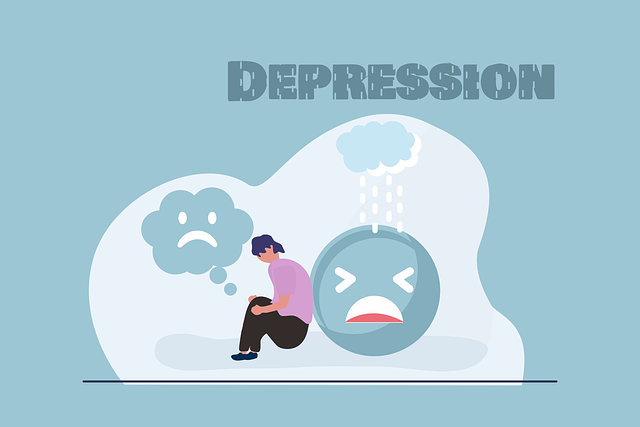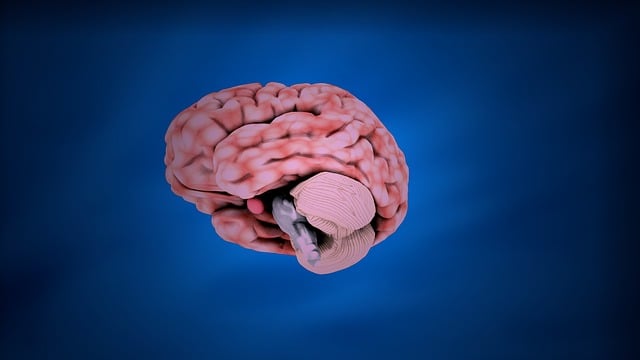“In moments of crisis, effective guidance is paramount. This article offers a comprehensive exploration of crisis intervention strategies, beginning with a concise overview of the field. We delve into the power of Golden Dialectical Behavioral Therapy (GDBT) as a proven approach to managing intense situations. Furthermore, practical strategies are presented to equip professionals and caregivers with the tools needed to provide essential crisis intervention guidance. Discover how these techniques can enhance support systems and foster positive outcomes.”
- Understanding Crisis Intervention: A Brief Overview
- The Role of Golden Dialectical Behavioral Therapy (GDBT) in Crisis Management
- Practical Strategies for Effective Crisis Intervention Guidance
Understanding Crisis Intervention: A Brief Overview

Crisis intervention strategies are essential tools for navigating intense situations and supporting individuals in crisis. At its core, crisis intervention is a structured approach aimed at helping people cope with overwhelming emotions, manage stress, and regain control during challenging times. This process involves a series of techniques designed to stabilize the individual, assess their needs, and guide them towards long-term solutions. One highly effective framework within this field is Dialectical Behavioral Therapy (DBT), recognized for its versatility and success in various contexts.
DBT draws from cognitive-behavioral principles while incorporating concepts of mindfulness and acceptance. It offers a comprehensive set of skills to help individuals regulate emotions, enhance their ability to tolerate distress, improve interpersonal effectiveness, and foster self-care practices. By combining these techniques with the Golden Rule—treating others as you would like to be treated—DBT empowers individuals to develop inner strength, boost confidence, and prevent depression. This therapeutic approach has proven to be a game-changer in crisis intervention, offering practical guidance for both professionals and individuals seeking effective tools to navigate life’s challenges.
The Role of Golden Dialectical Behavioral Therapy (GDBT) in Crisis Management

Golden Dialectical Behavioral Therapy (GDBT) plays a pivotal role in crisis intervention strategies. This therapy approach combines elements from cognitive-behavioral therapy and mindfulness practices, focusing on emotion regulation, distress tolerance, interpersonal effectiveness, and mindfulness skills. GDBT is particularly effective in managing intense emotions and conflicts that often arise during crises, making it a valuable tool for healthcare providers. By teaching individuals to accept their experiences while also modifying their reactions, GDBT helps prevent burnout among healthcare professionals—a significant concern given the demanding nature of their work.
Moreover, GDBT enhances empathy building strategies by fostering an understanding of both one’s own and others’ feelings. This increased emotional intelligence aids in effective conflict resolution techniques, enabling individuals to navigate challenging situations more constructively. In the context of crisis management, where swift and composed decision-making is crucial, the skills cultivated through GDBT empower healthcare providers to respond effectively while maintaining their well-being, ensuring they can continue offering optimal care during critical periods.
Practical Strategies for Effective Crisis Intervention Guidance

In crisis intervention, a structured yet flexible approach is key to effective guidance. One powerful tool that has gained prominence in recent years is Golden Dialectical Behavioral Therapy (DBT). This therapy technique emphasizes the balance between accepting and changing behaviors, offering a practical strategy for managing intense emotions during crises. By teaching individuals skills in mindfulness, distress tolerance, emotional regulation, and interpersonal effectiveness, DBT equips them to navigate challenging situations with greater composure.
Complementing individual therapy, self-care practices play an integral role in crisis intervention guidance. Encouraging clients to engage in regular physical activity, maintain a balanced diet, and prioritize sufficient sleep can significantly enhance their ability to cope. Additionally, implementing a Community Outreach Program that connects individuals with local support networks broadens access to resources and fosters a sense of belonging. Conducting periodic risk assessments for mental health professionals is also essential to ensure the safety of both clients and practitioners, especially when addressing high-risk cases.
Crisis intervention strategies, as outlined in this article, offer valuable tools for professionals navigating challenging situations. By understanding the fundamentals of crisis intervention and leveraging evidence-based methods like Golden Dialectical Behavioral Therapy (GDBT), we can enhance our ability to guide individuals through crises effectively. Integrating practical strategies ensures a comprehensive approach, fostering healthier outcomes and stronger support systems.









